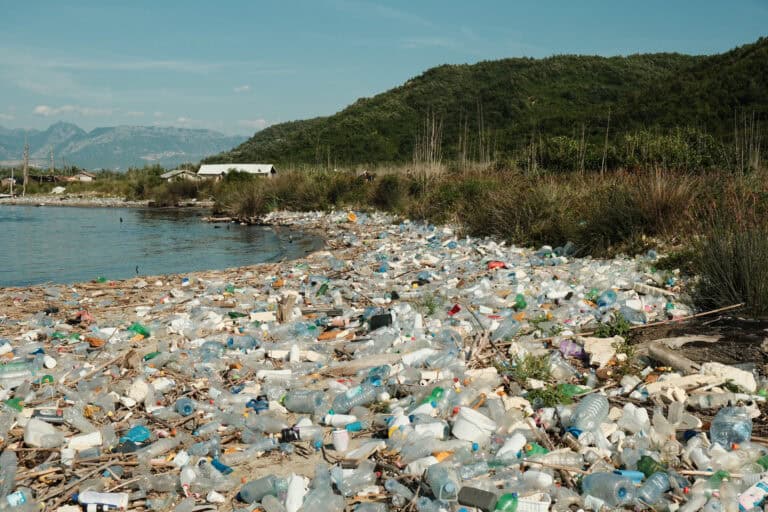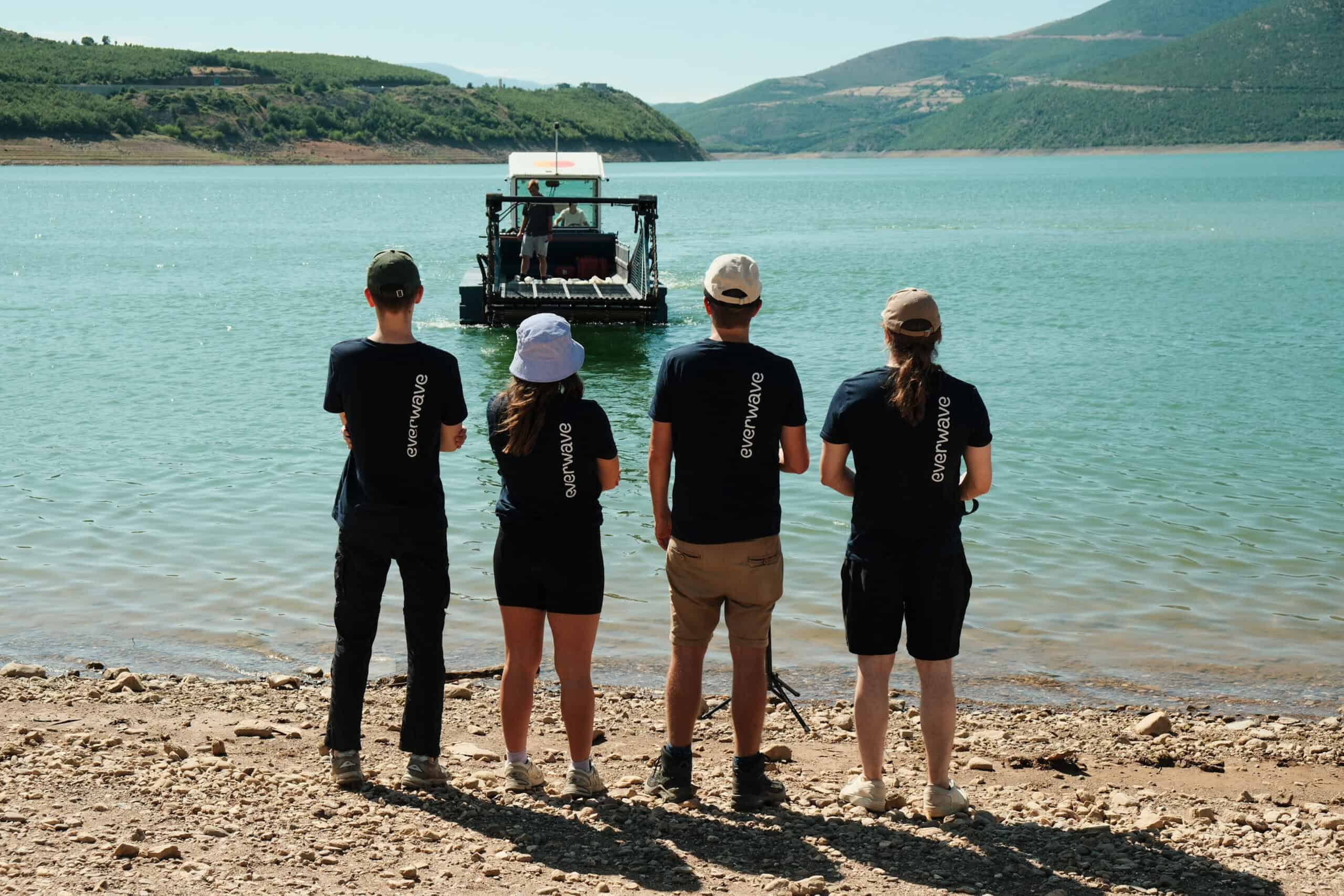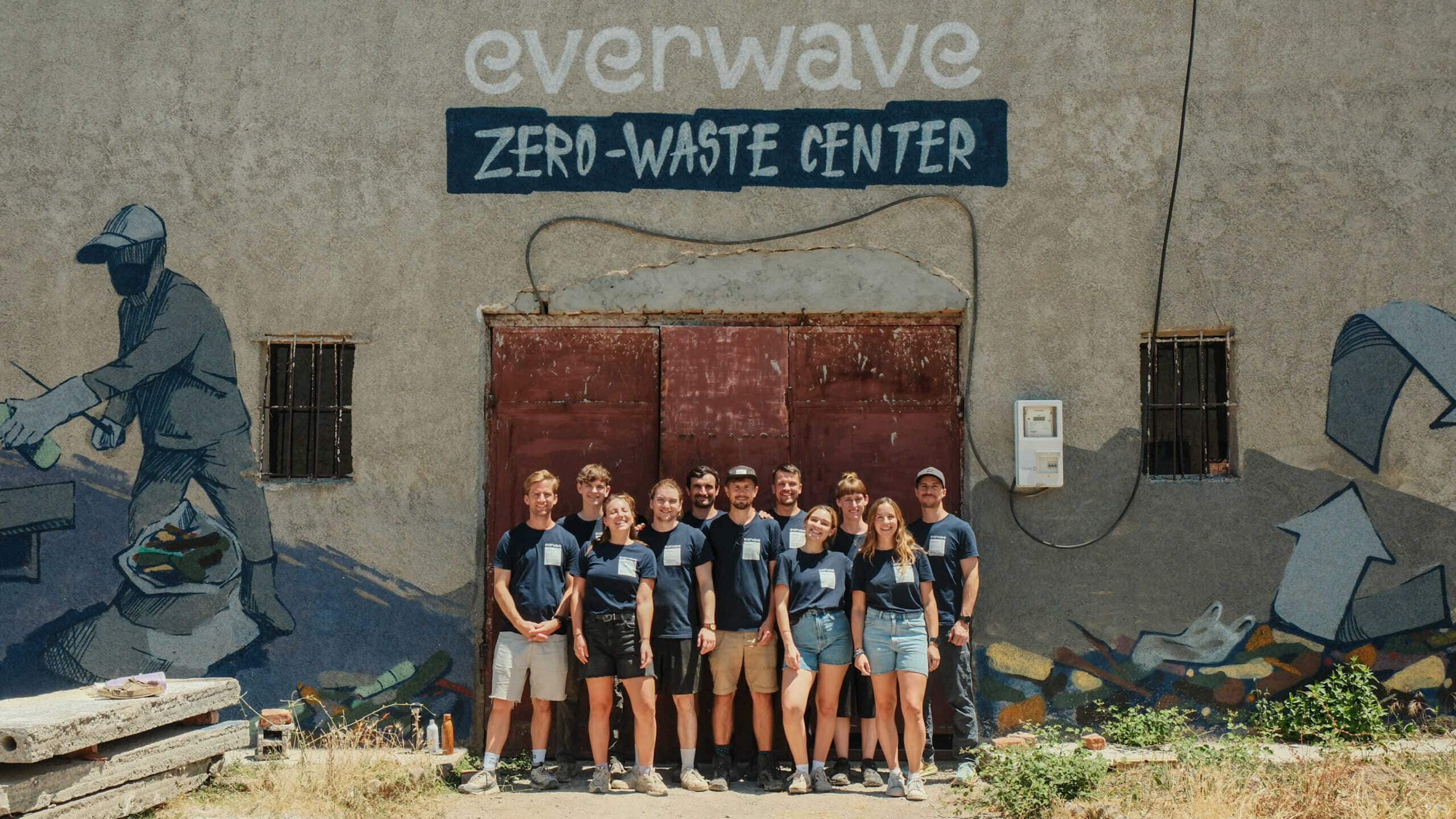Plastic Instead of Holiday Paradise: Albania Is Drowning in Trash
Breathtaking mountains in the north and sandy beaches along the coast – Albania impresses with its diverse natural landscapes. But one thing stretches across the entire country: plastic waste.
Beaches full of plastic
A lonely sandy beach by the Sea, with mountains in the distance – it looks like a holiday paradise. But the crunch of plastic underfoot shatters the idyll. Walk across the beach, and instead of soft sand beneath your feet, you feel plastic waste. And there’s no end in sight – as far as the eye can see, the beach is covered in plastic.
This beach is not somewhere far away, it’s here in Europe, at the Ishmi Delta in Albania, where the Ishmi River flows into the Mediterranean Sea. For years, Albania has struggled with severe environmental pollution, particularly along riverbanks, in rivers, and on beaches – and the Ishmi is the most polluted river in the country. Roughly one third of Albania’s population lives along this relatively short river, which stretches only about 75 kilometers.
The river’s banks are home to both the capital city Tirana and numerous industrial enterprises, many of which discharge their waste and untreated wastewater directly into the Ishmi. The consequences are clearly visible: the riverbanks, the water itself, and the river’s mouth into the Mediterranean are all heavily polluted with sewage, plastic, and other waste.

Albania lacks proper waste infrastructure
The big problem: waste management infrastructure is often dysfunctional or entirely absent. There is no nationwide system for how waste should be handled, which means that the majority is either burned illegally or dumped in unauthorized landfills, along roadsides, on riverbanks, or directly into rivers.
One key reason for the lack of proper waste infrastructure lies in the limited financial resources of local municipalities. They can barely afford to clean the streets and, in some cases, fund basic waste collection – but there is no money left to properly sort or recycle the waste. As a result, there is a shortage of facilities where waste can be collected and separated before it is processed further. For example, in 2019, there were only four official landfills in all of Albania that met safety standards for proper waste storage.
In the capital city of Tirana, things appear relatively clean: There are enough waste containers and a reliable waste collection system. However, the collected waste is neither sorted nor recycled – instead, it often ends up in unsecured landfills. In contrast, rural areas suffer from a highly inadequate waste management system. Waste containers are often located far from people’s homes or are insufficient in number, which leads many residents to dispose of their garbage in nature or directly into rivers. In addition to lacking proper disposal infrastructure, environmental awareness is often limited in these regions.
In 2018, some municipalities decided to stop investing in improved waste collection and separation. Instead, they chose to focus on building a waste incineration plant in Tirana. Critics warn that, from a sustainability perspective, it would make more sense to first establish a functioning system for collecting and sorting waste before investing in incineration infrastructure.
Fighting river pollution
The uncontrolled disposal of waste has devastating consequences for both people and the environment: water pollution, contamination of groundwater and soil, and widespread environmental degradation pose serious health risks to the population and lead to the destruction of local flora and fauna. This problem affects the entire country – but the pollution around the Ishmi River is particularly severe.
A major issue seen throughout the Balkans is the contamination of water sources with heavy metals. These pollutants can transfer from the water into plants and animals, eventually making their way into the human body. The main sources of this contamination are industrial activity, untreated wastewater, household garbage, and agricultural runoff.
Given the serious impact on human health and the destruction of ecosystems, cleaning Albania’s rivers and water systems is of vital importance. Moreover, both environmental cleanup and the establishment of a functioning waste management system are prerequisites for potential EU accession – Albania currently holds official candidate status.

Waste collection boat and infrastructure by everwave
The Ishmi Delta is remote and difficult to access, which means that basic infrastructure – such as well-developed roads – is lacking, making it impossible to establish a long-term cleanup site there. As a result, only manual cleanups are currently feasible directly at the Ishmi Delta.
The everwave cleanup site is located in northern Albania, specifically in Kukës. Here, everwave’s waste collection boat is operating on Lake Fierza, along the Drin River – both of which are vital sources of drinking water and energy for the country. A new Zero-Waste Center has been established directly at the operation site in Kukës, allowing for collected waste to be sorted, compressed into bales, and efficiently transported. This center is particularly significant for the everwave team, as it houses the very first waste press ever installed in Kukës.
The waste collected by the boat in Albania consists of approximately one-third non-recyclable and two-thirds recyclable material. The recyclable portion is mostly PET plastic, which is pressed at the Zero-Waste Center and then transported to recycling facilities in Tirana.
Currently, the non-recyclable waste is disposed of in a secured local landfill. While this does not yet meet everwave’s environmental standards, there are currently no alternative disposal options in Kukës and the surrounding region. The team remains dependent on the country’s existing infrastructure – but efforts are already underway to find a better long-term solution.

Research Report on the Ishmi Delta: https://www.researchgate.net/publication/338864825_Stopping_the_pollution_of_Ishmi_River_Basin_in_Albania


